self
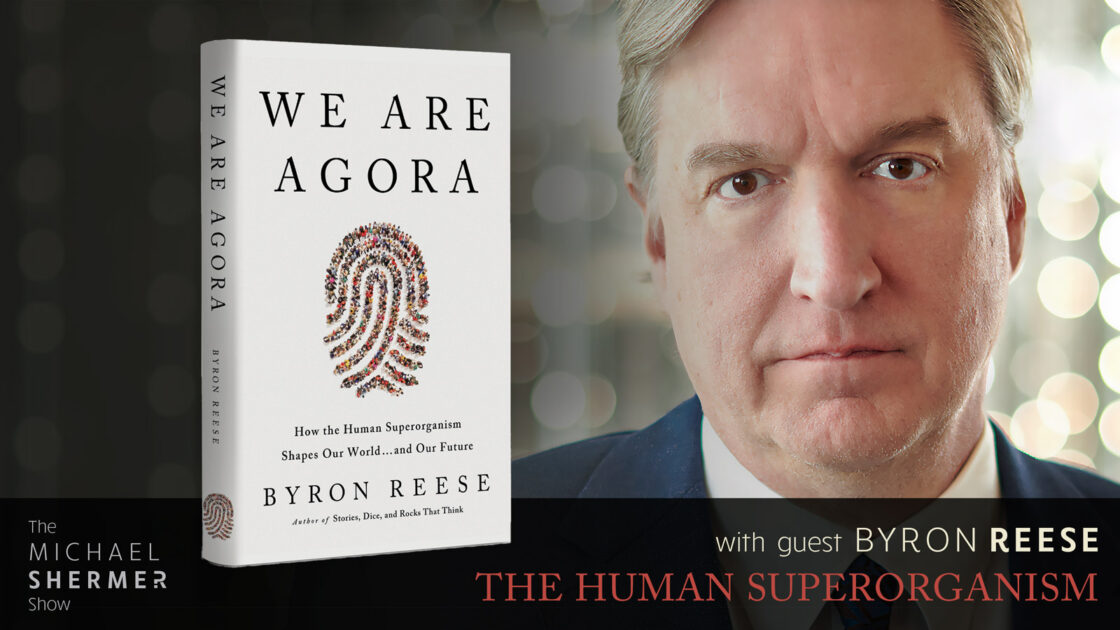
Shermer and Reese discuss: • organisms and superorganisms • origins of life • the self • emergence • consciousness • Is the Internet a superorganism? • Will AI create a superorganism? • Could AI become sentient or conscious? • the hard problem of consciousness • cities as superorganisms • planetary superorganisms • Are we living in a simulation? • Why are we here?
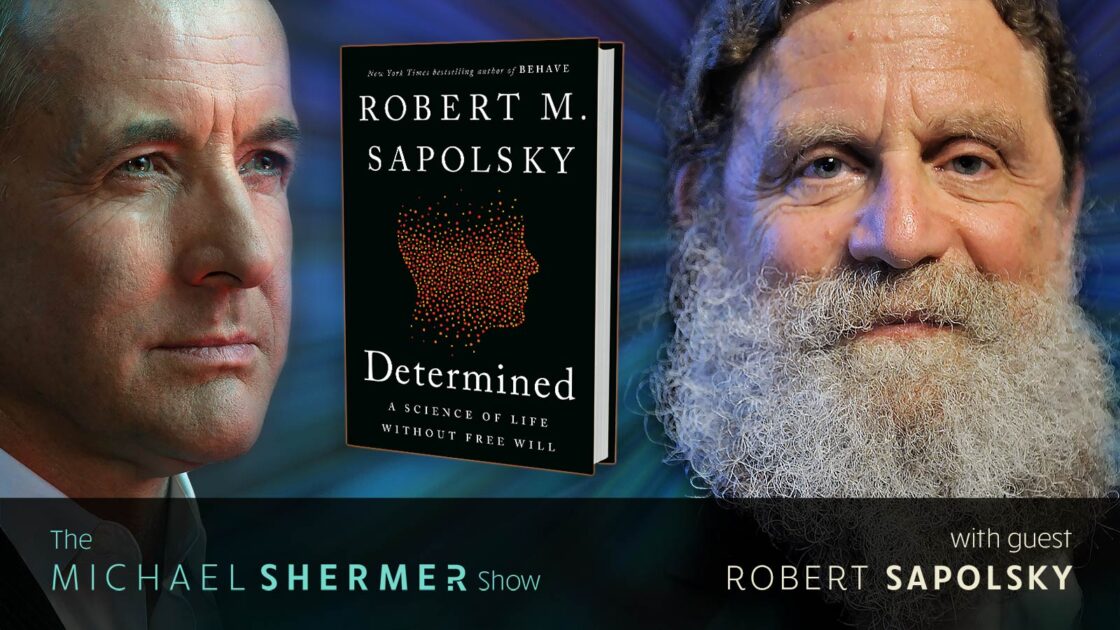
Shermer and Sapolsky discuss: free will, determinism, compatibilism, libertarian free will • Christian List’s 3 related capacities for free will • how what people believe about free will and determinism influences their behaviors • the three horsemen of determinism: (1) reductionism (2) predetermination; (3) epiphenomenalism • dualism • punishment • retributive vs. restorative justice •Is the self an illusion? • game theory evolution of punishment • luck • and meaning (or lack thereof).
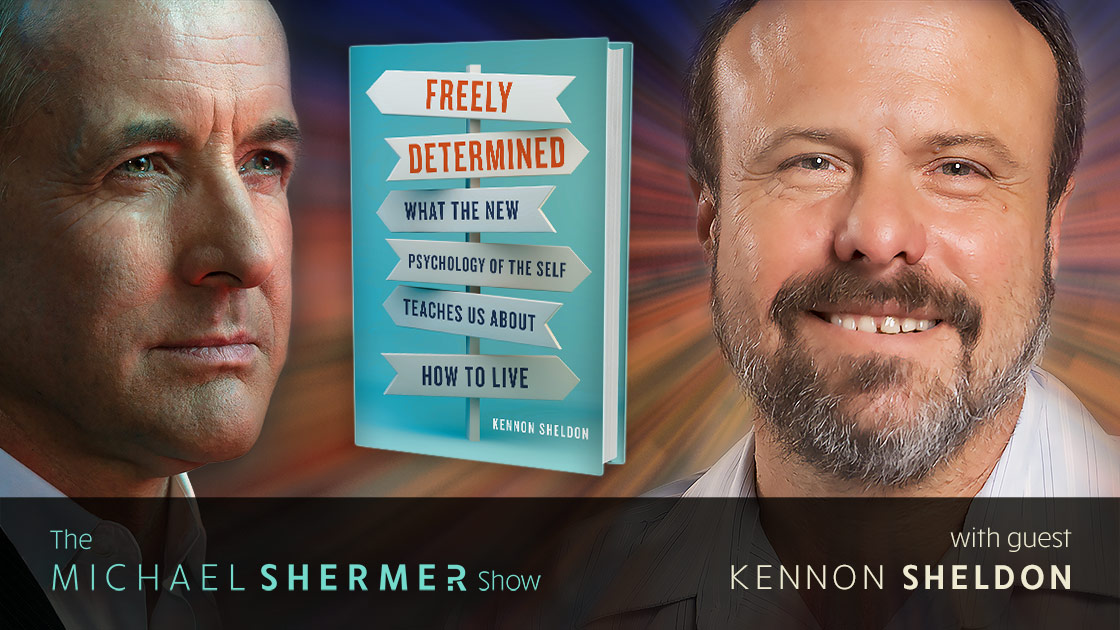
Shermer and Sheldon discuss: definitions of free will, determinism, compatibilism, libertarian free will • dualism • reductionism, materialism, predetermination, and epiphenomenalism • Christian List’s three capacities for free will • AI, Star Trek’s Data, sentience and consciousness, ChatGPT, GPT-4 • how what people believe about free will and determinism influences their behaviors • the case for hard determinism • brain injuries, tumors, addictions, and other “determiners” of behavior • emergence • symbolic self • System 1 vs. System 2 thinking • Experiencing Self vs.…

Shermer and Perry discuss: What was the sexual revolution? • feminism: first wave, second wave, third wave, and beyond • the evolutionary psychology of sex differences • experiencing self vs. remembered self • individual freedom vs. societal good • monogamy vs. polygamy • marriage vs. domestic partnerships • Why is the government in the marriage business? • BDSM and sexual violence • autogynephilia • trans matters • abortion matters.
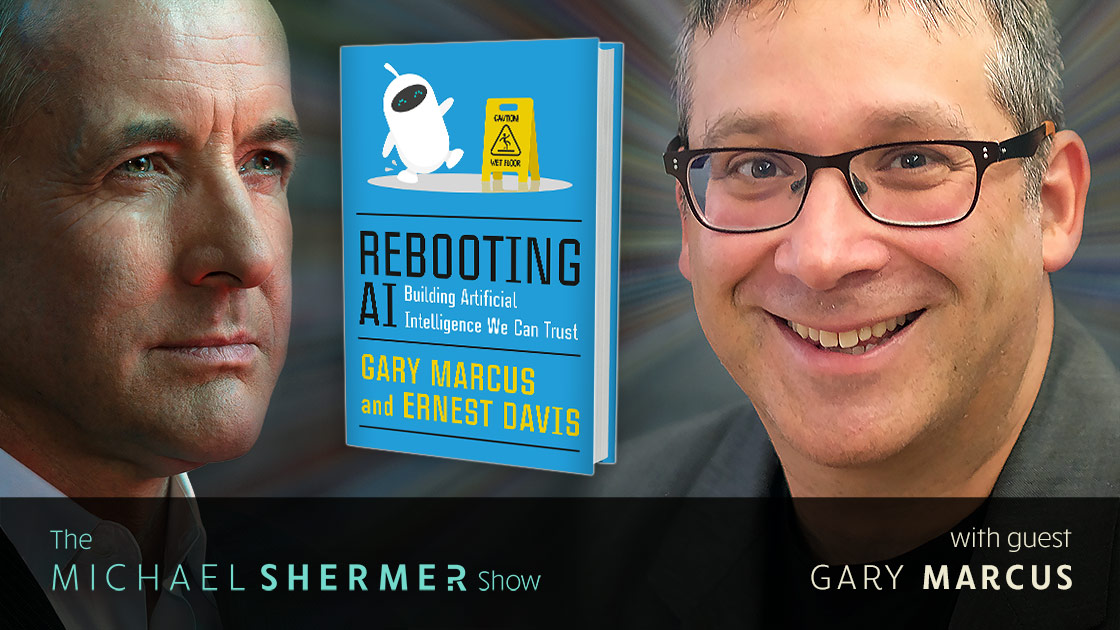
Shermer and Marcus discuss: why AI chatbot LaMDA is not sentient • “mind”, “thinking”, and “consciousness”, and how do molecules and matter give rise to such nonmaterial processes • the hard problem of consciousness • the self and other minds • How would we know if an AI system was sentient? • Can AI systems be conscious? • free will, determinism, compatibilism, and panpsychism • language • Can we have an inner life without language? • How rational or irrational…
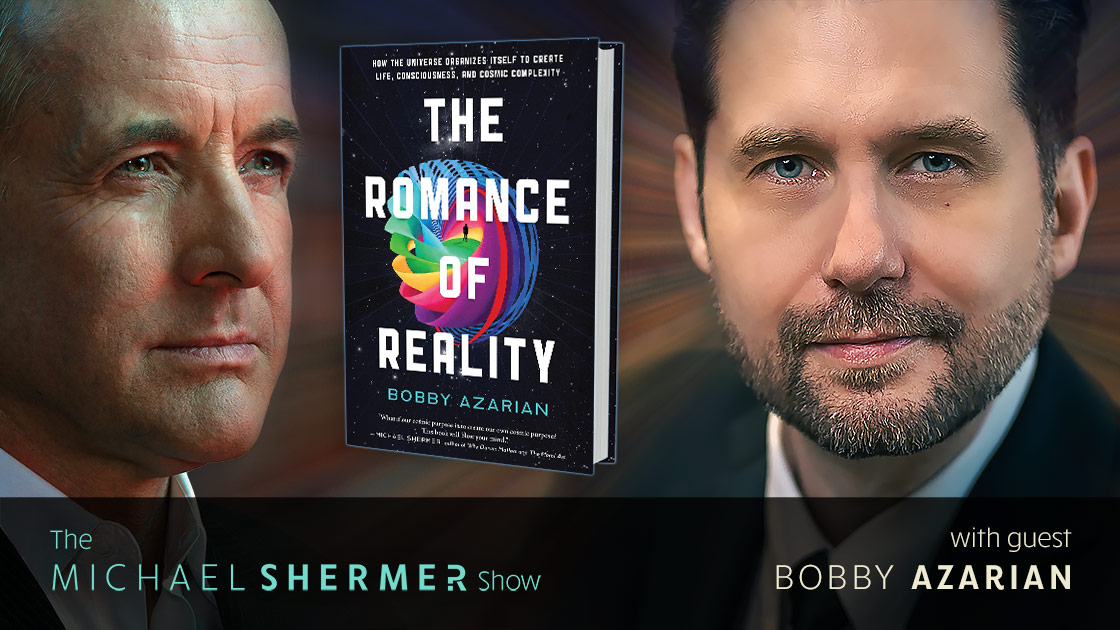
Shermer and Azarian discuss: laws of thermodynamics and directionality • how complexity formed after the Big Bang • laws of nature: discovered or created or both? • Stephen Jay Gould and contingency vs. necessitating laws of nature • convergent evolution and directionality in evolution • the left wall of simplicity • leading theories for the origin of life • complexity theory and emergence • consciousness, the self, and other minds • free will, determinism, compatibilism, panpsychism • Is there purpose…
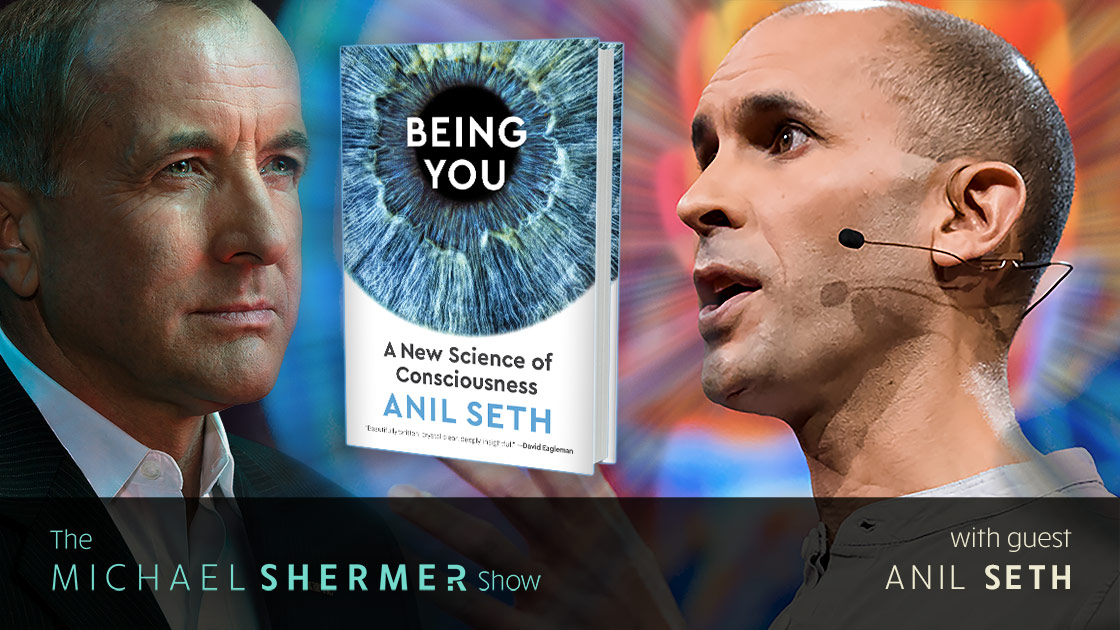
Shermer and Seth discuss: consciousness • controlled hallucinations • the self and other minds • Where does consciousness go during general anaesthesia? After death? • Are we living in a simulation that itself is inside a simulation? • Does Deep Blue know that it beat the great Gary Kasparov in chess? • Does Watson know that it beat the great Ken Jennings in Jeopardy!? • Is Data on Star Trek sentient, conscious, and with feelings? • Can AI systems be…
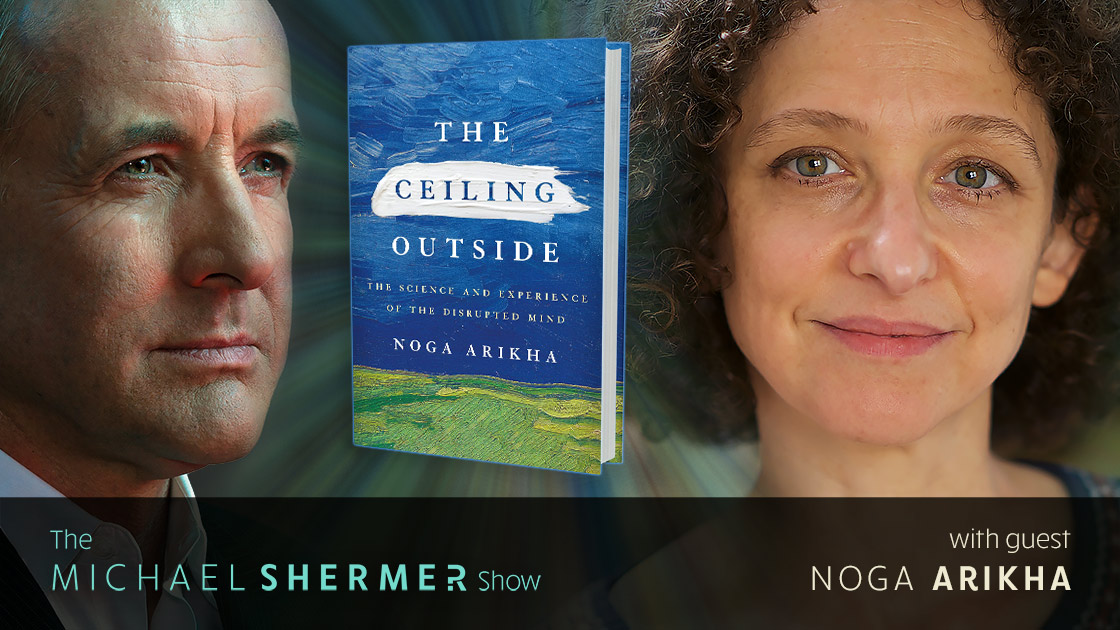
Shermer and Arikha discuss: dementia, senility, Alzheimer’se • mental illness and the labeling problem • the social construction of mental illness • neurology and psychiatry • agency and volition • memory and amnesia • autobiographical memory • self and embodied self • brain modularity • brain as a machine • emotions and cognition • conversion disorder/hysteria • depression • metacognition • exteroception and interoception.
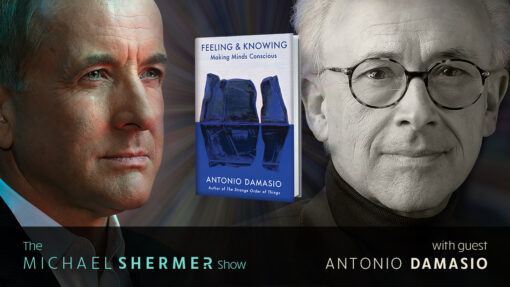
In episode 221, Michael Shermer speaks with Antonio Damasio about recent findings across multiple scientific disciplines that have given rise to new understandings of consciousness.
In episode 221, Michael Shermer speaks with Antonio Damasio about recent findings across multiple scientific disciplines that have given rise to new understandings of consciousness.
Jennifer Michael Hecht celebrates doubt as an engine of creativity and as an alternative to the political and intellectual dangers of certainty. This lecture from our archives was recorded in July 2005 as part of The Skeptics Society’s Distinguished Science Lecture Series.
Today, August 18, marks the 100th anniversary of the adoption of the 19th Amendment to the Constitution of the United States, guaranteeing women the right to vote. We honor that momentous event with an excerpt adapted from the chapter on women’s rights in Dr. Shermer’s 2015 book The Moral Arc. PLUS: in Science Salon # 129, Michael Shermer speaks with Mona Sue Weissmark about her book The Science of Diversity which uses a multidisciplinary approach to excavate the theories, principles,…
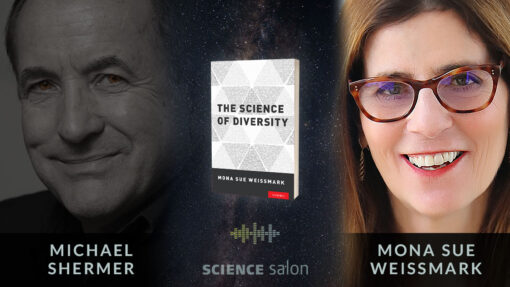
In Science Salon # 129, Michael Shermer speaks with Mona Sue Weissmark about her book The Science of Diversity which uses a multidisciplinary approach to excavate the theories, principles, and paradigms that illuminate our understanding of the issues surrounding human diversity, social equality, and justice.
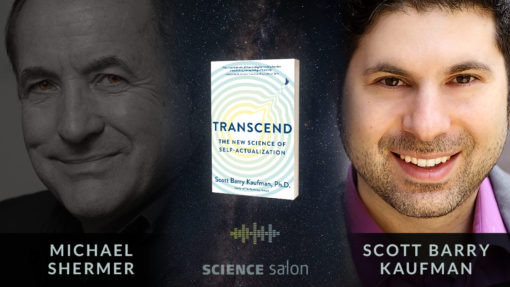
In Science Salon # 111 Michael Shermer speaks with psychologist Scott Barry Kaufman about his book Transcend: The New Science of Self-Actualization. Kaufman picks up where Abraham Maslow left off, unraveling the mysteries of his unfinished theory of transcendence, and integrating these ideas with the latest research on attachment, connection, creativity, love, purpose and other building blocks of a life well lived.
In Science Salon # 111 Michael Shermer speaks with psychologist Scott Barry Kaufman about his book Transcend: The New Science of Self-Actualization. Kaufman picks up where Abraham Maslow left off, unraveling the mysteries of his unfinished theory of transcendence, and integrating these ideas with the latest research on attachment, connection, creativity, love, purpose and other building blocks of a life well lived.
In this lecture, based on her book, Me, Myself and Why Jennifer Ouellette addresses the science of the self and delivers a fascinating survey of the forces that shape who we are and why we act the way we do.
In a lecture, recorded in July 2005 for The Skeptics Society’s Distinguished Science Lecture Series, Jennifer Michael Hecht celebrates doubt as an engine of creativity and as an alternative to the political and intellectual dangers of certainty.
In this week’s eSkeptic, David Voron reviews Being No One by Thomas Metzinger.



















